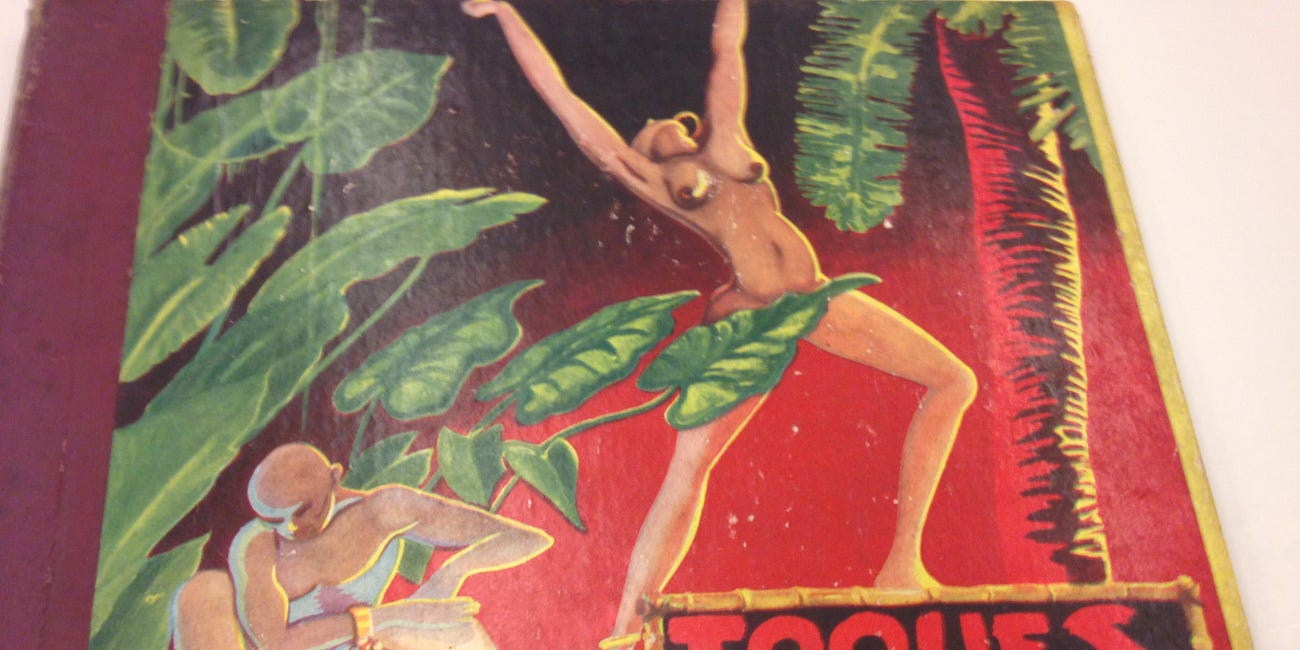CELIA CRUZ 100 YEARS/100 SONGS: Late career duets
When the “Queen of Salsa” met hip hop, rock, disco, reggaton and ska.
On October 21, 2025, a cry of “Azucar” will be heard around the world. The date is the centennial of Celia Cruz’s birth. The celebration of what would have been Celia’s hundredth birthday (she died on July 16, 2003 at age 77) really began when the U.S. Mint dropped into circulation a commemorative quarter cast with a characteristically joyful image of Cruz performing on it last summer. And it’s about to kick into high gear with concerts, merchandise and sundry tributes coming from all over in the next months.
There will be a lot of noise about Celia to be sure, making for a fiesta befitting the most recognized female figure of Cuban music, who was a global superstar before there were so many of those. If you’re familiar with my writing, you may think that I’d be inclined to dismiss the din. But no, Cuba on Record is not skipping this party. I’ve been looking forward to it. I can use some uplifting music right now (the understatement of 2025).
Starting today, with the premiere of my 100 years/100 songs series, I’ll dive deep into Celia Cruz’s catalogue to reveal lesser-known recordings, and ones that show that Celia’s life and work are much more than the stereotypical sketch that usually accompanies the title of the "Queen of Salsa," which has become inseparable from her name.
Just as Celia’s fabulous wardrobe evolved over the decades, she embraced the changes in music trends. As her recordings attest, she faced challenges (and aging) with an “ok, what else you got?” attitude.
Here are six duets that Celia recorded in the evening of her life with younger artists, encompassing Latin alternative, hip hop, disco and reggaeton (several years before it exploded into the mainstream with Daddy Yankee’s “Gasolina.”)
“Guantanamera”– Wyclef Jean Featuring Celia Cruz
Wyclef Jean paired Cruz with Lauryn Hill on his hip hop re-working of the song adopted as the Cuban popular national anthem, “Guantanamera.” It also features the much overlooked Jeni Fujita, who sings in duet with Celia to beats and guitar. And of course Wyclef himself.
Like other tracks on Wyclef’s 1997 The Carnival, it’s a natural and pretty genius mix of past and (then) present.
“That was then this is now,” Wyclef snaps, interrupting Celia’s singing of the familiar song in vintage style at the beginning of the track. With the help of Ms. Hill, he proceeds to spin a story of a night-running urban girl whose “Parents came from Cuba/part Mexican/Pure sweet/Dimes fell to her feet…She turned dinero to dinera.”
“Do you speak English? Can I buy you a drink?” cracks Wyclef, a line evoking South Beach in the ’90s and a blessedly messy American clash of cultures.
Wyclef Jean’s “Guantanamera” video, directed by Marc Smerling:
“A lo loco” – Jarabe de Palo featuring Celia Cruz
Celia Cruz and the Catalan singer-songwriter Pau Donés (leader of the band Jarabe de Palo, he became known by that name himself) might seem like an odd couple. But in fact the two had in common an unsinkable attitude and a taste for life-affirming music that embraced its ups and its downs. Donés was a bar stool philosopher whose glass-half-full point of view was epitomized by his song “Depende” (“It Depends”).
Celia’s own repertoire is full of songs that are likewise lessons in positive thinking, as outlined in her enduring celebratory hit “La vida es un carnaval.”
Along that vein, there’s not a lot of pondering going on in “A lo loco,” a 1998 party song that combines rumba flamenco and Brazilian samba and some rockabillyish guitar and urges listeners to “live life the way that you want.” It’s a bittersweet message from two artists known universally as wonderful humans, now both gone. Pau Donés died of colon cancer in June 2020; he was 53.
Celia Cruz and Pau Donés became friends, and in 2001 they met up again to sing “Guantanamera” with Luciano Pavarotti at a “Pavarotti and Friends Concert” in Módena, Italy, a performance for which I have no explanation. But it’s fun to watch.
“Vasos Vacíos” - Vicentico and Los Fabulosos Cadillacs featuring Celia Cruz
I’ve been a Cadillacs fan since I first encountered the Argentine ska band playing at a party in someone’s apartment in Buenos Aires. I think it was 1986.
When their greatest hits compilation Vasos Vacíos came out in 1993, I was playing “Matador” loud in my Miami Beach apartment. The previously unreleased track won an MTV award and become a signature anthem for the band.
But another song I kept listening to was “Vasos Vacíos” (“Empty Glasses”), through which I discovered the seductive power of frontman Vicentico’s voice as a ballad singer.
On this duet Celia is in fantastic and uncharacteristically low-key form. Talk-singing, growling “wow!” and harmonizing with Vicentico, she demonstrates all her potential as a pop vocalist here.
“La Negra tiene Tumbao” - Celia Cruz featuring Mikey Perfecto
Produced by visionary producer Sergio George, “La Negra Tiene Tumbao” was a song by a 75-year-old artist that laid a clear path for the future of Latin music. The title track of Celia’s 2001 Latin Grammy-winning album features Mikey Perfecto, a Nuyorican rapper performing what was then still mainly being referred to as hip hop en español or Spanish dancehall and would soon explode as reggaeton.
Celia herself called the song “a salsa rap piece,” noting in her autobiography that “although the video was a bit risqué,” the song became a hit. She remembered that that although she almost fainted when she saw the clip directed by Ernesto Fundora, “it was a great help for the single and the album in general, and it became especially popular among men.”
The uncensored video:
“Soy Loco por ti América” - Caetano Veloso and Celia Cruz
Celia’s encounter with Brazilian Tropicália was not without some conflict. This love song for Latin America by Gilberto Gil and José Carlos Capinan, first recorded by Caetano Veloso in a bilingual Spanish and Portuguese version on his 1968 eponymous album, was written as a tribute to Che Guevara.
Capinan later said in an interview with the EFE news agency that it was written the very day that Guevara was murdered in Bolivia in October 1967. The icon of the Cuban Revolution is cryptically referred to in the song as “el hombre muerto” (“the dead man”), in order to not attract the attention of officials of Brazil’s military regime, who already had the members of the Tropicália song movement on their radar. (Gil and Veloso were arrested and jailed without trial on sketchy charges in early 1969. They both subsequently went into exile in London.)
Years later, according to Capinan, Celia passed on the song when she found it was inspired by Guevara. More surprising is the fact that she did record it.
Perhaps because “Soy loco por ti América” (“I’m Crazy About You America”) did not mention Guevara by name, and otherwise poetically extolled Latin American unity and the beauty of its landscapes -and maybe because the lyrics did include the name Martí (presumably a reference to historic Cuban hero José Martí), Celia did relent during a visit to Brazil and joined Veloso for a salsa version of the pop protest song.
Capinan said that Celia pointed out that the title of the song - a translation from Portuguese, was grammatically incorrect, and that it should be “Estoy loco por ti América.” Still, the track she recorded with Veloso is titled “Soy loco por ti América.”
It is included on her 1997 Duets album.
“Yo Viviré” - Celia Cruz featuring Lucrecia
Celia Cruz’s version of Gloria Gaynor’s “I Will Survive” is not the ultimate revenge song. Nor is it strictly a female empowerment anthem, although by virtue of the fact that it can be considered Cruz’s swan song, it’s that too. “Yo viviré” is at once a personal message from beyond in which Celia lets fans know she’s still here in her music, and a more universal song about music’s ancestral roots.
This version features the muscular voice of Lucrecia, a Celia protegé who frequently performs her late idol’s repertoire and has also played her onstage in Celia, the Musical. The track is included on the posthumous 2009 album La reina y sus amigos.
Listen to the songs in this story in a playlist:
On Qobuz:
Concert alert: Lucrecia will appear at Lincoln Center in New York on June 21, with two other singers known as heirs to the Celia Cruz songbook, Xiomara Laugart and Lena Burke.
Presented in collaboration with Caribbean Cultural Center African Diaspora Institute, the concert, titled Salsa En Tacones, will be “a musical celebration honoring the strength and resilience of Afro-Latina women while embracing the sensuality, empowerment, and cultural pride embodied by the great female artists who have shaped our musical heritage.”
Here is the link for more information and tickets:
https://www.lincolncenter.org/series/summer-for-the-city/salsa-en-tacones-623
Related stories:
LATINA: Women, Music and Glamour in the Gladys Palmera Collection
LATINA: Women, Music and Glamour is an exhibition of over 500 record covers, historic photographs, magazines, fashion, movie posters and film clips from the Gladys Palmera Collection of Afro-Latin music that combine to tell an alluring story about music, image and the mixation …
Celia Cruz's Chants and More Ritual Music on Vinyl
To read the full story of these groundbreaking Afro-Cuban recordings and listen to some key tracks, please consider supporting me with a paid subscription
A Fine Romance: Malena Burke Sings to Meme Solis
Meme Solis has known Malena Burke since she was a baby and he was a teenager playing piano for her mother, Elena Burke, one of Cuba’s greatest artists of all time.










